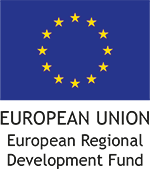According to the UN Environmental Programme, there will be more plastic in the world’s oceans than fish by 2050, if the current rate of pollution continues. In the beginning of December, Ministers of the Environment from all around the world gathered to Nairobi for the UN Environment Assembly. One of the Assembly’s themes was marine plastic waste. It was decided to set up a working group to develop world-wide solutions to the problem of plastic waste and present them at the next Assembly in 2019.
Marine plastic waste takes many shapes and forms. I’m unfortunately sure we’ve all seen a plastic bag or bottle floating in the see or a lake. What we don’t so often realise is that for example some cosmetics and textiles contain micro-plastics, which is very harmful to marine wildlife. Although the level of wastewater treatment and urban run-off management is high in Finland, a part of the micro plastics we release ends up in the Baltic Sea.
We need global policies and commitments to beat the marine plastic challenge. However, no policy will have an impact without local action. Some 20 years ago I used to organise beach-cleaning days and campaigns at the coastlines of my childhood home lake Saimaa with a local environmental NGO. It was enormously rewarding to work together with enthusiastic people and see the immediate results of a day’s job. The campaigns also helped raise people’s awareness about the importance of actually putting ones trash in the place it belongs to – the appropriate bin.
In my current hometown Helsinki, an association called Lyhty ry is doing an excellent job in taking local action for a cleaner Baltic Sea by raising awareness about the marine plastic waste problem. Lyhty works with disabled people and one of their activities is maintaining two Seabins – yes, bins that collect waste from water. The bins are located in places where people gather to enjoy the sea, so in addition to collecting trash from the water they remind us all not to litter. Maintaining them can also be an empowering experience to the disabled persons, as they get to show others how one can act for a cleaner environment.
Improving the state of the Baltic Sea requires urgent action. We all have a role to play in this work, particularly when it comes to reducing marine plastic waste. Our daily choices matter, so let’s work together.

